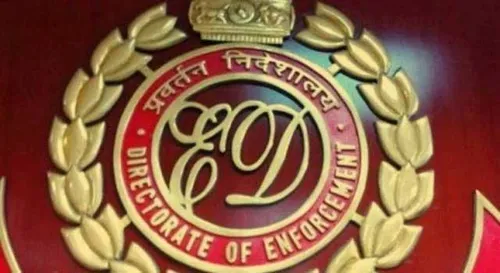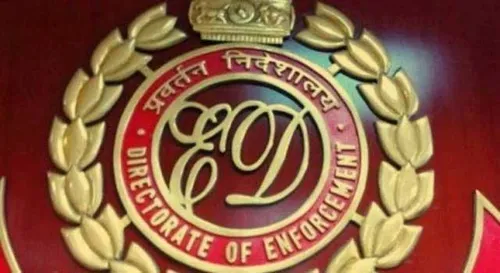The Enforcement Directorate’s Actions Against a Realty Promoter Linked to Lalu Prasad: A Critical Analysis
The recent attachment of assets worth Rs 113 crore by the Enforcement Directorate (ED) of a real estate promoter linked to former Indian Railways Minister Lalu Prasad Yadav has once again highlighted the growing efforts by Indian authorities to combat financial crimes. This incident is a part of a larger crackdown on economic offenders, reflecting the government’s determination to bring transparency and accountability to the nation’s financial system. However, this action also raises important questions about the nexus between politics and business in India, the effectiveness of legal frameworks, and the broader implications for governance and the rule of law.
Table of Contents
Background: Lalu Prasad Yadav and Corruption Allegations
Lalu Prasad Yadav, a prominent political figure in India, has faced numerous corruption allegations over the years. His tenure as the Chief Minister of Bihar and later as the Union Minister for Railways was marred by controversies, the most infamous being the fodder scam, which led to his conviction and imprisonment. Despite his legal battles, Lalu Prasad Yadav remains a significant figure in Indian politics, particularly in Bihar, where he continues to wield considerable influence through his party, the Rashtriya Janata Dal (RJD).
The attachment of assets worth Rs 113 crore by the ED is reportedly linked to a real estate promoter with close ties to Lalu Prasad Yadav. The promoter is accused of laundering money through real estate deals, with the proceeds allegedly benefiting Yadav and his associates. This development is part of a broader investigation into corruption and money laundering involving political figures and their business allies.
The Role of the Enforcement Directorate
The ED, a specialized financial investigation agency under the Ministry of Finance, is responsible for enforcing the provisions of the Prevention of Money Laundering Act (PMLA), 2002. Over the years, the ED has been instrumental in unearthing financial crimes, particularly those involving politically exposed persons (PEPs). The agency’s mandate includes tracing and attaching assets derived from proceeds of crime, with the ultimate goal of bringing offenders to justice.
In the case of the real estate promoter linked to Lalu Prasad Yadav, the ED’s action underscores its commitment to curbing financial crimes and ensuring that those who misuse their political connections for personal gain are held accountable.
Political and Legal Implications
The ED’s actions against the real estate promoter have significant political and legal implications. For one, they highlight the deep-rooted nexus between politics and business in India, where politicians often use their influence to benefit their business associates. This nexus has long been a source of corruption and has undermined public trust in the political system.
Legally, the attachment of assets by the ED sets a precedent for future cases involving money laundering and corruption. It signals that the Indian legal system is capable of holding powerful individuals accountable, regardless of their political affiliations. However, this also raises concerns about the potential misuse of investigative agencies for political purposes. Critics argue that the ED and other agencies have sometimes been used as tools to target political opponents, which can undermine the rule of law and erode democratic principles.

Broader Implications for Governance
The attachment of assets in this case also has broader implications for governance in India. It highlights the need for greater transparency and accountability in the relationship between politics and business. Ensuring that political figures do not misuse their positions for personal gain is essential for maintaining public trust in the political system.
Moreover, this incident underscores the importance of strengthening legal frameworks to combat financial crimes. While the ED’s actions are commendable, they also reveal the challenges faced by Indian authorities in tackling complex financial crimes, particularly those involving powerful individuals. There is a need for continued reforms to enhance the effectiveness of investigative agencies and ensure that they operate independently and without bias.
Conclusion
The attachment of assets worth Rs 113 crore by the ED of a real estate promoter linked to Lalu Prasad Yadav is a significant development in India’s ongoing battle against financial crimes. It reflects the government’s commitment to ensuring transparency and accountability in the nation’s financial system. However, it also raises important questions about the nexus between politics and business, the effectiveness of legal frameworks, and the broader implications for governance and the rule of law. Moving forward, it is essential that India continues to strengthen its legal and institutional frameworks to combat corruption and ensure that those who engage in financial crimes are held accountable.








